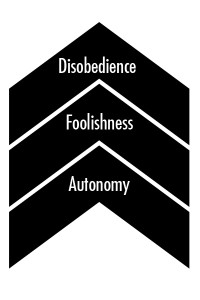Yesterday was a milestone in our history as we kicked off two services! And by God's grace it went really well.
Our Volunteers are Awesome Our church has grown to the size now where there are a great many of our volunteers that I've never actually met. So, when I find someone who's face I know but name I don't turning up quite early on a Sunday to setup, I'm struck with gratitude. Our teams (and their leaders) did an outstanding job. It looked like we'd been doing this for years.
Pruning Hurts but It's Necessary I'll admit, part of me wasn't looking forward to two services. I mean, a full house just feels better than a less full house. But full houses can also make you lazy. "Oh look at us, we're so full this Sunday..." and motivation to scatter is sapped. In going to two services, we're not only creating more room for more people to worship Jesus. We're creating a small visual reminder that we all have a role to play in that. Prune the fruitful branch and what happens? Pain. But after the pain, more fruit.
Thank our Teams All our teams worked hard(er) yesterday. So, when you see someone next weekend carrying a gigantic speaker, teaching our kids, or welcoming guests, thank them for their service. Heck, invite them out to coffee, get to know them. Show some love to those who show it often.
You probably don't know this (because there's no reason you should) but the story of Cain and Abel was the very first text of Scripture I ever preached. Since first thinking about this story, it's never ceased to amaze me just how unapologetically real, raw, and uncensored the Bible is. Here are some lingering thoughts for your perusal.
Cain Thought God Owed Him You can see Cain's heart in the way he reacted to a "no" from God. Cain thought (like many of us) that God is obliged to accept us. We deserve a shot. We deserve acceptance. Cain was wrong, and so are we. God owes us nothing. That he gives us goodness at all should tell us what kind of good, loving, gracious sovereign we actually have.
Self-Pity is Sin When Cain was told no, first he got angry. His anger gave way to a puddle of self-pity in which he wallowed. Anger and self-pity are emotions we experience when we feel that someone has wronged us. Cain felt like God wronged him. Abel wronged him. He deserved to be angry. He deserved to be pitiful. This is the blindness that sin creates. It covers our ability to see that we, yes us, are the problem. Self-pity is sin.
No one Else to Blame Cain murdered Abel. Cain. It wasn't like he was from a bad part of town. There wasn't a bad culture. No poor schools to blame. No bad group of friends. We're so quick to look around at something other than our nature to blame for depravity. But this story won't let us. It's just the nature of this fallen human, one generation from paradise. The problem isn't (primarily) school, government, sex, drugs, rap music, friends, mom, dad, him, or her. It's you. It's me.
The Righteous Guy Died I realize that at any given moment there's someone on TV with a great suit and a plexiglass pulpit who'd like to sell you his book all about how if you're righteous and live by faith nothing bad will ever happen to you. The Bible, however, knows nothing of such nonsense. Abel was the first guy outside of Eden who was righteous by faith. And he was murdered. Doesn't seem fair? Not what you thought? How could a loving God? Remember, the inheritance of righteous in the next life is good enough to overshadow his temporary suffering in this one. It's a shadow and the sun. The sun shines the shadows away and the shadow leaves nothing but a memory.
The Righteous Guy (Figuratively) Rose Cain's line turned out to have lots of culture and no righteousness. Where was the promised redeemer of Genesis 3 coming from? From the line of Abel. Abel died, but Seth was born in his place. Figuratively speaking, the righteous line rose from death. Sound familiar? It should, because just as Cain killed Abel in sin, we killed Christ. Just as the ground opened to receive Abel's blood, Christ when into the ground. And just as Seth was born to take his place, Jesus came back to life so that all who might call on the name of the Lord would be saved.



